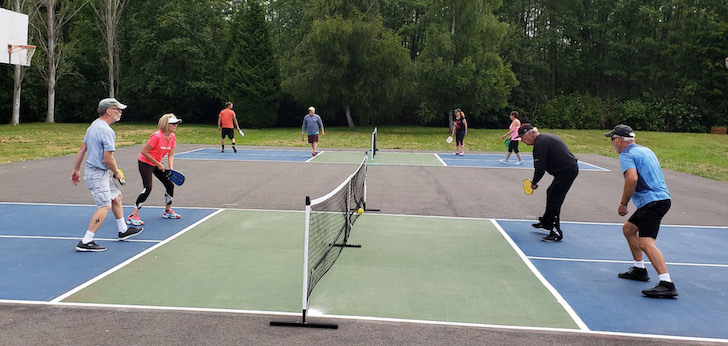To gain approval from municipalities and building authorities for the construction of Padel Courts, it’s crucial to clearly communicate the numerous benefits this sport can bring to a city or a little municipality. The better these advantages are presented, the higher the chances of gaining support and receiving a positive decision.
The following arguments illustrate the benefits that Padel can offer to cities and municipalities:

- Health Promotion and Recreational Offering:
Padel promotes physical activity and provides an attractive recreational option for all age groups. It is an easy-to-learn sport that appeals to both young and old, contributing to the overall health of the population. - Social Interaction and Community Building:
Padel is a team sport that fosters social interaction. It strengthens the sense of community and offers a platform for citizens from diverse backgrounds to connect and build social bonds. - Inclusive Sport:
Padel is highly suitable as an inclusive sport because it can be played by people with varying abilities. The barriers are low, and the sport can be easily adapted to meet the needs of individuals with physical or mental disabilities. This promotes integration and creates inclusive communities. (see also Padel for people with special needs) - Senior-Friendly:
Padel is also well-suited for seniors, as it is less demanding on joints and muscles compared to many other sports, allowing older adults to stay active. Participation in Padel supports the physical and mental health of seniors, improves mobility, and helps prevent social isolation. - Tourism Promotion:
Padel is growing in popularity, both nationally and internationally. A modern Padel facility can serve as an attraction for tourists and sports enthusiasts, boosting local tourism and stimulating the economy. - Enhancing the City’s Appeal:
The construction of Padel courts can increase the city’s attractiveness, particularly for younger demographics, families, and seniors. It can also serve as an incentive for new residents to settle in the city or for businesses to view the city as an appealing location. - Economic Benefits:
Building and operating Padel facilities create jobs and can generate additional revenue for local businesses such as sporting goods stores, restaurants, and hotels. Renting out courts and organizing tournaments can also become additional income sources. - Sustainability and Environmental Friendliness:
Modern Padel facilities can be designed to be environmentally friendly by using sustainable materials and energy-efficient lighting. Additionally, Padel requires relatively little space compared to other sports, allowing for efficient use of urban areas. - Youth Sports Development:
Padel can also contribute to the development of youth sports in the city by being integrated into school and leisure programs. This supports the athletic development of young people while promoting discipline and teamwork. - Low Entry Barriers:
The cost of playing Padel is relatively low compared to other sports, making it easily accessible to people from all social backgrounds.
By emphasizing these benefits, municipalities and building authorities can better understand the value that Padel brings to their city, increasing the likelihood of project support.






